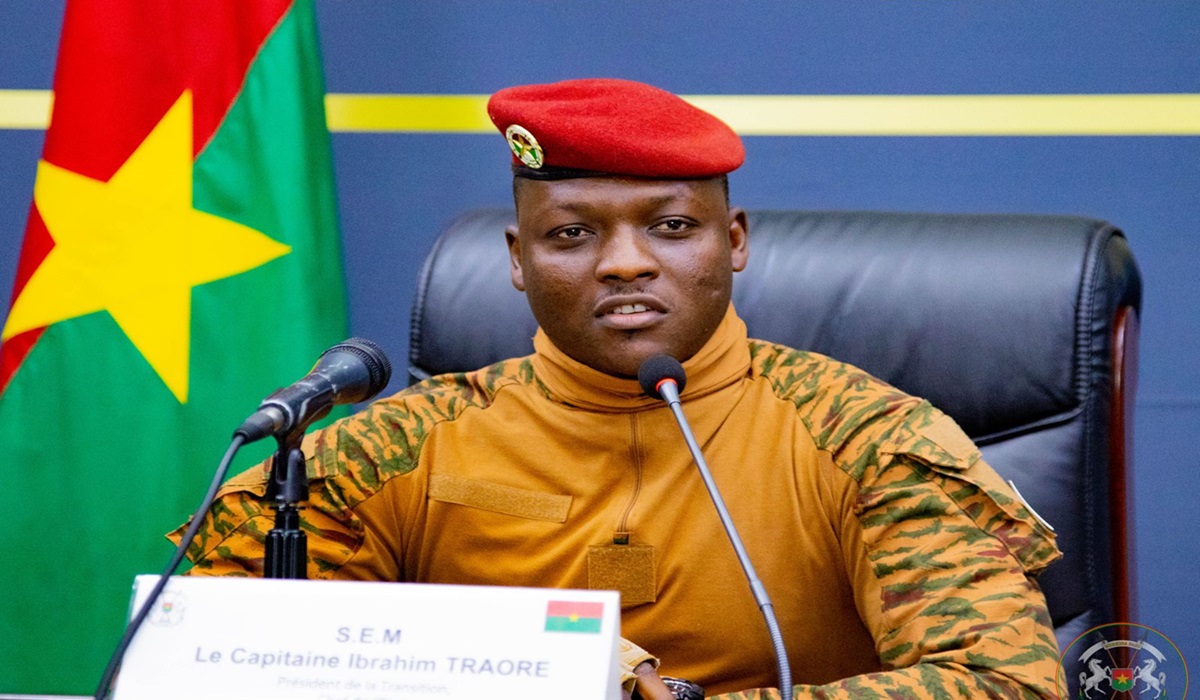Image Credit, Gov. Burkina Faso
For decades, Burkina Faso appeared to break free from French colonial rule in 1960, but beneath the surface, true independence remained elusive. Although officially decolonized, France’s grip never really loosened. The former president Paul-Henri Sandaogo Damiba was little more than a obedient leader, faithfully advancing French interests while his nation languished under extreme poverty and exploitation. The country was forced to use the West African CFA franc, a currency controlled by the French treasury, effectively binding the economy to French influence. With a significant portion of its foreign exchange reserves in French banks, the nation’s financial resources were siphoned off to France, limiting any real economic progress for its people.
During the former regime, resources like uranium and gold were mined and exported by foreign companies, leaving the citizens to survive on mere scraps. While foreign powers amassed wealth from these precious resources, the nation’s people faced deteriorating living conditions and a lack of essential services. With infrastructure that barely functioned, roads in ruin, and healthcare systems in disarray, the former president’s administration showed little interest in improving the lives of its people, focusing instead on enriching itself and preserving French interests.
This dark chapter in the nation’s history has finally taken a turn. Captain Ibrahim Traoré, a young and dynamic leader, has taken control, breathing new life into a long-oppressed nation. From the moment he assumed power, his goal was clear: end the legacy of foreign exploitation and return resources to their rightful owners. In one of his first moves, he severed ties with France, removing foreign companies that had been plundering national resources. Traoré’s decisive action to nationalize mining industries has restored hope to millions, as the country’s wealth—once claimed by foreign corporations—is now destined to benefit its own citizens.
The transformation Traoré has initiated is extensive and transformative. Infrastructure projects are underway, with new roads, railways, and bridges connecting previously isolated regions. Factories are being constructed to provide jobs and economic stability, while previously abandoned schools are reopening with a renewed focus on modern education. In healthcare, Traoré’s government has prioritized providing universal healthcare, finally addressing a critical need that was neglected for far too long.
Security, too, has been strengthened. With an army restructured and modernized, the people finally feel that they have a government capable of protecting them from the extremist threats plaguing the region. Under the former president, military resources were squandered and leadership corrupted, leaving the country vulnerable to both internal and external dangers. Traoré, by contrast, has restored a sense of safety and stability, giving the citizens a renewed sense of hope for the future.
Despite Traoré’s popularity, the West has not welcomed his reforms. Labels like “authoritarian” and “controversial” have been applied to his leadership style, but for the people, this change is exactly what the country has needed for decades. The West’s disdain stems from Traoré’s refusal to allow the continued exploitation of his nation’s resources rather than any genuine concern for democracy or human rights. Many Western nations have long benefited from the continent’s resources under a thin veneer of “development aid” and “military assistance,” an approach he has openly rejected. He’s drawn a hard line, marking an end to the old ways of doing business, which only benefited foreign powers.
As Traoré’s vision unfolds, this once-struggling country is poised to become a model of resilience and self-sufficiency, a testament to the power of national determination. Through new agricultural practices, advancements in technology, and a commitment to self-sustaining economic systems, the country is reclaiming its independence in every sense. It’s not just an economic or political overhaul—it’s a cultural renaissance that stands as a blue print for other African nations seeking their own path to liberation from neocolonial control.
The former president’s legacy remains a cautionary tale. He presided over a government that operated less like a national leader and more like a stooge for foreign interests, prioritizing personal enrichment over the well-being of his people. Infrastructure, healthcare, education, and job creation were all sacrificed in favor of maintaining the status quo, even as citizens struggled in worsening conditions. Today, the people are painfully aware of what his leadership cost them. Traoré’s administration, by contrast, has restored faith and optimism, delivering tangible improvements and a renewed sense of national pride.
Traoré’s leadership has brought Burkina Faso to the cusp of a remarkable transformation. While the former regime left the country teetering on the brink, the new administration has focused on creating a nation where citizens have access to healthcare, education, and meaningful employment. It’s no surprise that Western observers are watching closely, some uneasy with a self-sufficient and unexploited nation emerging in West Africa. Yet, for the citizens, this leadership shift is a welcome and necessary revolution.
The new Burkina Faso is becoming a testament to African self-determination, challenging the exploitative structures that have dominated for too long. The days of foreign corporations seizing wealth are ending, and the country is reclaiming its resources, power, and future.









